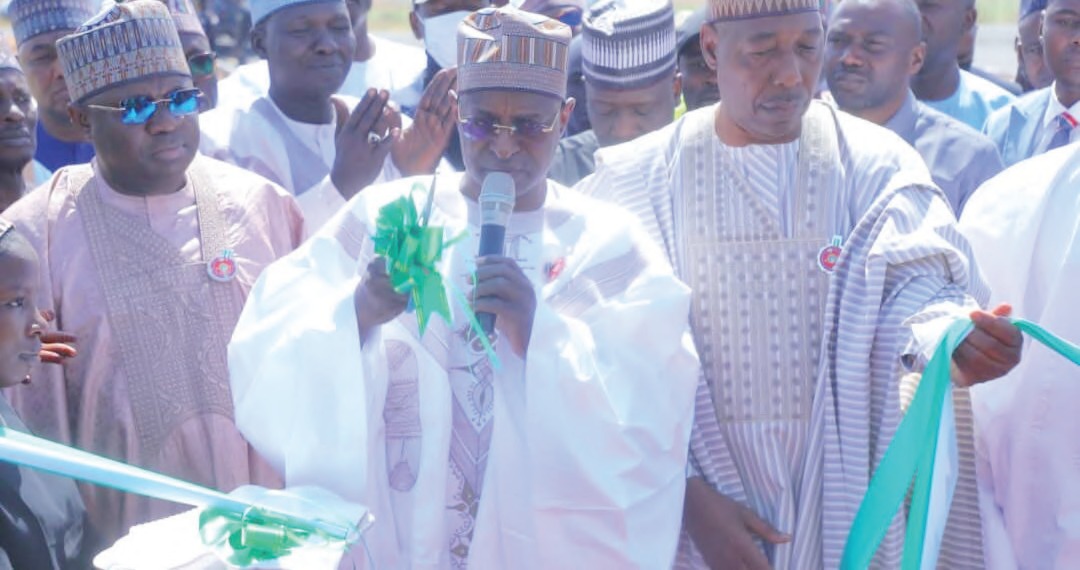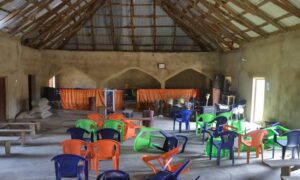BY ABDULLAHI MOHAMMED
Meat business is a huge business. The global beef market alone is massive. According to Global Beef Market Report for 2023, global beef market is projected to hit 421.61 billion dollars by 2028, with a 4.05 per cent compound annual growth rate.
The figure is a leap from 332.29 billion dollars in 2022, In other words, over the next couple of years, the world’s beef industry is forecast to grow by 90 billion dollars.
The United Nations Commodity Trade Statistics Database (UN Comtrade) says Nigeria Exports of meat and edible meat offal stood at 200.66 dollars in 2021.
According to Statista, the Meat market in Nigeria is projected to grow by 10.90 per cent between 2025 and 2029 resulting in a market volume of 71.84 billion dollars in 2029.
Annually, the country consumes around 360,000 metric tonnes of beef, it says.
China is the world’s largest importer of beef, importing more than 63 billion dollars’ worth of beef in the past 5 years, according to Iowa Farm Bureau.
One of the largest livestock breeding states in the country, Borno, sees the livestock market as a huge opportunity to improve revenue and become less dependent on handouts from the Federation Account.
It was against the background that the Prof. Babagana Zulumled administration inaugurated the Ngarannam Livestock Improvement and Ranch Settlement Estate, the first of its kind in the state at Mafa Local Government Area.
According to Dr Umar Kadafur, Deputy Governor and Supervis- ing Commissioner, Livestock and Fisheries Development Ministry, the Ngarannam livestock estate was designed in line with the required operational tools, equipment and infrastructure.
“These centres will play a vital role in enhancing the quality of livestock breeds, with a particular focus on improving milk and meat production.
“Borno State Government built and equipped the multi-million naira Ngarannam Breeding Centre and Provided over 1.5 billion naira for AI, Embroy Plssma Transfer Centres as well Liquid Nitrogen complex in the 2025 Budget,’’ he said.
A section of cows at Ngarannam’s Livestock estate in Borno Kadafur said the pasture Development Centres, were critical for sustainable grazing, as they offer dedicated spaces for pasture cultivation to ensure year-round feed availability for livestock as designed in the project.
“Currently Borno State Ministry of Livestock is managing 20 hectares of pasture under irrigation and cultivated well over 200 hectares of Rain fed pasture across the state.
“By establishing milk collection hubs, we create opportunities for dairy farmers to earn a stable income, increase local milk production, and meet our state’s dairy needs,” the deputy governor said.
It is important that Borno takes advantage of its location, human and material resources to tap into the huge livestock market, said Prof. Attahiru Jega in his keynote at the inauguration.
Jega, who is also the Co-chair of the Presidential Livestock Re- forms Committee, spoke on: “Reforms in the Nigerian Livestock Sector: Unlocking Great Potentials for Economic Growth and Peaceful Coexistence.”
Jega’s paper focused on the long-term impact of the livestock industry in Nigeria and the effects of business expansion without perfecting viable marketing strategies.
“It is essential to prioritise and address the unique challenges faced by different regions,” he said, even as he emphasised improving productivity across the livestock value chain is a national priority.
Jega pointed out that regions with low animal output and market access may benefit more from first addressing market-related issues rather than focusing on productivity.
“Already a media report had established that China has been identified as one of the biggest beef markets in the world.
“If I were Zulum, I would take advantage of this information and see how the state’s livestock breeders could fashion their business standard to international best practices.
“This is in order to suit the demands of the teeming beef consumers in China and beyond,’’ Jega said.
Jega also urged the expansion of successful practices and models in managing the ranches, noting that many effective practices were currently being implemented on a small scale.
“Borno government has to start preparing the state’s livestock products to be competitive by showcasing their healthy and well-fed cows before the international markets.
“For example, the development of improved animal breeds suited to various regions should be prioritised, especially for poultry adapted to specific agro-ecologies.
“Small and medium-scale dairy producers must embrace innovation and growth to remain competitive.
“Evidence indicates that startups and smaller dairy producers can thrive as demonstrated by small and medium-sized dairy companies driving the 1.1 billion dollars growth in the US dairy sector between 2015 and 2018,” he said.
Jega, therefore, called on the state to adopt diverse and integrated strategies, saying a multifaceted approach may be more effective in enhancing livestock value chains













